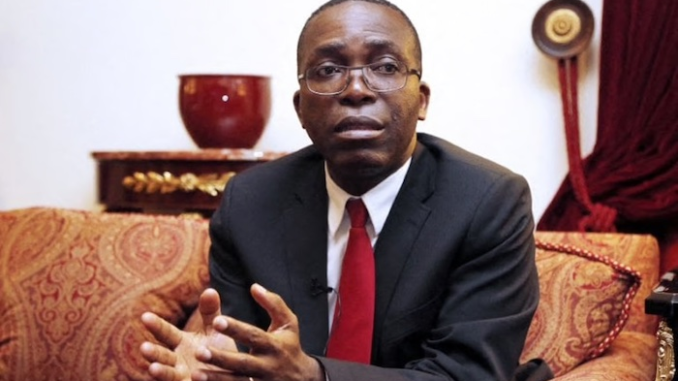
Former DR Congo PM Ponyo has been sentenced to 10 years forced labour after being found guilty of embezzling $245 million
A former prime minister of the Democratic Republic of Congo (DRC), Augustin Matata Ponyo, has been sentenced to ten years of forced labour after being convicted of embezzling approximately $245 million in public funds.
The Congolese Constitutional Court handed down the ruling on Tuesday, also sentencing Deogratias Mutombo, the former governor of the country’s central bank, to five years of forced labour in connection with the same case.
The court found both men guilty of misappropriating funds allocated to the Bukanga-Lonzo Agro-Industrial Park—an ambitious agricultural initiative meant to address the DRC’s chronic food insecurity. Once touted as one of the largest agricultural investments in Africa, the project collapsed amid allegations of widespread corruption. It was projected to generate 22,000 jobs and significantly bolster local food production.
Matata, who served as DRC prime minister between 2012 and 2016 and was previously lauded by the IMF for economic reforms during his tenure as finance minister, now leads the Leadership and Governance for Development party (LGD). He had intended to contest President Félix Tshisekedi in the 2023 presidential elections but later withdrew from the race.
“This ruling is unfair and politically motivated,” his lawyer told Reuters, underscoring the former prime minister’s consistent denial of the charges.
The case, which has been under investigation since 2020, stems from findings by the country’s Inspectorate General of Finance that detailed massive financial mismanagement linked to the agro-industrial park.
Both Matata and Mutombo have also been barred from holding public office for five years following the completion of their sentences, according to AFP. While Mutombo has not publicly responded to the verdict, international observers and rights groups are expected to monitor the development closely.
Forced labour remains legal in the DRC as a criminal penalty when imposed by the courts, in line with domestic statutes, though human rights advocates have repeatedly criticised its use.
DR Congo continues to battle systemic corruption and a severe food crisis, with more than 28 million people currently facing acute food insecurity amid decades of conflict and instability following the 1994 Rwandan genocide.
